|
Article by Jennifer Taylor | GoBankingRates Featured expertise by Jason Gelios The COVID-19 pandemic changed the way you work. Instead of putting on real pants and commuting to an office each day, you’re now working remotely all — or most — of the time.
You’re certainly not alone in this shift, as 59% of U.S. workers who say they have the ability to work from home are doing so exclusively — or more so than not — according to the Pew Research Center. Since home now doubles as your workplace, you want to create space for a new office or update the one you already have. The average cost of professional home office remodeling is $15,000, according to HomeAdvisor, so it’s important to make sure your upgrades are a good investment. Lack of Organizational Elements The best home office renovation creates a space that is comfortable but also conducive to productivity, said Jason Gelios, a Realtor in Southeast Michigan. “A home office should have a place for everything and not become a catch-all for clutter,” he said. “Properly renovated home offices have appealing storage items such as drawers, storage cubbies and a fully functional desk.”
0 Comments
Early indicators are that the home-buying market is starting to stabilize. It’s imperative to price your home realistically. By Terri Williams | Published Apr 25, 2022 Featured Expertise by Jason Gelios Photo by IstockPhoto During the past two years, home prices have been, for lack of a better word, crazy, so much so that we’ve been warning buyers not to compromise on some of the essentials that could lead to buyer’s remorse.
However, prices are finally starting to drop in some parts of the country. “Home sellers in 2022 should be aware that the housing market is beginning to transition towards favoring home buyers,” says Jason Gelios, a realtor at Community Choice Realty in Detroit, MI. “Compared to the past two years or so where homes were receiving over a dozen offers, we are seeing an average of five offers per home,” he says. So, how should you price your home in today’s volatile real estate market? Keep reading to learn about four crucial things to keep in mind. Click here to read more Personal Interview with Jason Gelios
Host: Savio P. Clemente with The Human Resolve Topic: Building resilience to get through tough times By: Amy Howell Hirt
Like thinking vertically, especially if storage space is lacking. Working from home has a lot to offer. No more long commute (or drama from your cubicle mate). It’s so much easier to be productive, right? Only if you’ve got an organized home office, that is. “It really allows you to focus on what’s important,” says Calabasas, Calif.-based organizer Lori Gersh. That means you can more easily ignore distractions (like that pile of dirty laundry). Here’s how to fix your home work space to pump up your productivity. #1 Purge First Sure, shopping for organizers is fun. They don’t call it “retail therapy” for nothing. But to create a system primed for maximum output, you should first soldier through the task of ditching paperwork and office supplies that clutter rather than help and, most important, find homes for all things unrelated to work (well, except for a sentimental photo or two — and plants; plants are good). Consider it boot camp to get your work life in shape. Plus, the more open and organized your space is, the easier it’ll be to focus. #2 Create a Work Hub — Even if Space Is Minimal A separate room with only one function — work — is ideal, but so is a beachfront address. Just because you don’t have a spare room doesn’t mean you can’t have an “office.” You can easily create one. A small desk and storage ottoman for files and supplies may be all you need. Or a small coat closet could be repurposed if you need something more substantial. Relocate the coats and jackets to hooks in your entry or move them to other closets, and convert that closet into a work nook with a built-in tabletop and floating shelves. But if you work from a multipurpose space like the kitchen table, or prefer to roam from table to couch, it’s a bit more of a challenge — but still solvable. Try a rolling cart loaded with your work supplies. “It helps you focus because you have things right where you need them,” says New York City organizer Stephanie Shalofsky. (There’s a ton of sizes and configurations to choose from.) Then simply roll it out of sight when company comes. #3 Use Vertical Space to Organize It’s surprising how often wall space is overlooked as an organizing solution. When everything you need is right there on your wall and easy to find, your productivity jumps. Buy ready-to-hang cubbies, or create your own system, and hang them just as you would a collection of pictures. Some other ideas:
#4 Separate Household Files from Work Files If you do business and household duties from the same space, you need separate systems to help you stay focused, Shalofsky says. This is super easy to do. You just need to commit to do it:
#5 Tidy Up Before Clocking Out When you work from home, there’s no cleaning crew to spruce up your space after hours and no peer pressure to maintain a somewhat orderly space. So, although it’s tempting to let it be, take just a few moments to toss unnecessary paperwork, remove trash, and make sure your work space is ready for work in the a.m. By clearing the way today, you’ll hit the ground running tomorrow. Congratulations. You’re now living the work-at-home dream! Guest Writer: Sally Norton It's never too late to buy your dream home! Don't let your age discourage you if you're thinking of buying a home. Just because moving is often associated with younger folks doesn't mean you shouldn't follow your dreams and become a homeowner in your golden years. However, you should keep in mind that purchasing a home at 65 is not the same as buying at 30. To help you through this process, we compiled a list of tips for buying a home in your senior years. #1 Find the Right Neighborhood When you're buying a home in your senior years, one of the most important things to consider is the location. Do your research and find the right neighborhood that fulfills all your wants and needs. For example, if you have health-related issues, choosing a place near a medical institution or a hospital might be wise. This way, you'd be close enough in case of an emergency, and you won't have to get someone from your family to drive you to every doctor's appointment. Furthermore, if you want to live in your own apartment but need daily support or medical care, spending time in an assisted living facility or community is a good idea. Activities, trips, and meals provided in dining facilities are standard in assisted living complexes. #2 Think About Downsizing It's easy to get caught up looking at those beautiful two-story, three-story homes. However, you probably don't need anything that extravagant when you're buying a home in your senior years. This is especially true if you're living alone or with your spouse; you won't need all those extra bedrooms and bathrooms. Moreover, more rooms mean more cleaning and maintenance. By choosing a smaller house, you can save yourself a lot of money and use your free time to focus on your hobbies and interests. #3 Consider Your Mortgage Options Usually, most seniors would rather buy a house with cash than take out a loan. That way, they don't have to worry about paying off their mortgage, and there's a 0% chance of their heirs having to help out or inheriting a loan. However, not all seniors have the means to pay for a home entirely in cash. And the process of getting approved for a mortgage can get even more complicated if you're a senior. But all of that shouldn't make you give up. Instead, you should find a financial consultant and see what your options are and if they'll affect your pension. Hire a real estate agent to help you find the best house for you. #4 Hire a Real Estate Agent House hunting can get tricky. If you're not a real estate expert, you may not know when you're overpaying for a home or making a bad deal. That's why you should enlist the help of an actual real estate agent. They'll help you find your dream home, negotiate a good deal and assist you with the paperwork. Moreover, if you have any special requirements for the home you're looking for, they'll always come up with the best option. For example, if you're buying a house and you have pets, your real estate agent could focus on only the listings with a big enough backyard for your pets to run around but not so big that the maintenance is a hassle in your senior years. #5 Be Cautious Unfortunately, many real estate predators are out there attempting to take advantage of the elderly. To prevent falling into their traps, ensure your market knowledge is up to date. Do all your own googling to inquire about the average home prices. Moreover, as we already mentioned, don't underestimate the importance of hiring a financial counselor and a real estate agent. Also, if you get any paperwork, be sure you've read and comprehended any tiny print. Real estate brokers that try to hurry you into making decisions and signing agreements may be trying to take advantage of you. Trust your instincts. You're probably right if you believe you are being told something that's too good to be true. Get a second opinion to be sure. Don’t be afraid to ask for help when buying a home in your senior years, whether it entails hiring a professional or asking somebody from your family. #6 Don't Stress Buying a house and moving is widely believed to be one of the most significant stressors in a person's life. For many people, changes like these take a toll on their mental health. However, a part of that is up to you and how you handle the stress. If it's taking too long to find the right home for you, understand that some things are just out of your control. You can't change the market; you can be patient and wait it out. Something will come up eventually. And when it does, you'll have to get ready for the process of relocation that's ahead. It's always a good idea to hire specialists and enlist their help, as it significantly helps with overcoming moving anxiety. In the meantime, try to keep calm and focus on what you can control. Enjoy your free time and hobbies and leave the work to the professionals whose job is to deal with things like that. #7 Hire Moving Assistance Moving into a new house is a difficult and physically demanding task. You might not have the energy as a senior to pack up your complete living quarters, let alone relocate and then unpack. Fortunately, various moving companies specialize in assisting seniors in packing their possessions and moving into their new homes securely and effectively. However, if you can't afford additional help, you can ask your friends and family to help you. Invite your kids and grandkids over, give them assignments and have them do most of the heavy lifting while you coordinate the move. It will be a fun family bonding time and a nice reason to see everyone get together. Since you can’t lift it all by yourself, hire movers to take your belongings into your new home. In Conclusion Buying a home is always a long and challenging process. And buying a home in your senior years is not any less complicated. However, that alone shouldn't stop you from doing what you want! There are plenty of excellent benefits to being a homeowner you shouldn't miss out on. So, if you don't think you can do it all by yourself, don't be ashamed to hire some help.
Image by Pexels Article by Guest Writer Sarah Velasquez Research from Mercer indicates that working from home may be far more practical than many people once thought. Moving forward, it is likely that companies will increasingly offer remote positions. Even so, working where you live can be tricky if you don't have the space to create a quiet, cozy and organized office. Consider several tips from Realtor Jason Gelios that may help you successfully transition to a larger home to accommodate your new professional routine. 1. Get Your Finances in Order It's a good idea to start the home-buying process by outlining your current spending habits and determining how much you can afford to put toward housing expenses each month. Next, connect with an experienced and dedicated real estate agent and start browsing homes for sale. Once you know the price range of the homes that interest you, be sure to meet with your bank or another lender. You will have a much better chance of closing a deal if you can show sellers that you have been preapproved for a mortgage of a certain amount. Preapproval demonstrates that you will be able to come up with the necessary funds to complete the purchase. 2. Capitalize on All Tax Advantages If you are starting your own business, it may be wise to check your state’s regulations about forming a limited liability company. Score notes that LLCs offer numerous benefits, a key one being that you have some flexibility when it comes to how you handle taxes. You can either pay taxes via your personal tax return (if you are a single-member LLC) or as an S or C corporation. Additionally, you may be able to save money on home expenses by deducting the amount you spend on your office from your taxes. This is often an option if your workspace is fully dedicated to professional use. If you are a first-time homebuyer, you may also have access to special loans or tax breaks. 3. Design a Productive Workspace When you view available homes, look for one that includes a room you can claim as your office. The best workspaces are in quiet areas of the house where there are minimal distractions. To set up your office, you will need several pieces of furniture, such as a desk, chair, bookshelf, and storage cabinet. Natural materials like wood or bamboo help to create an inviting Hygge-like atmosphere. You can also create a warm, welcoming atmosphere by purchasing custom wallpaper for your walls. That way, you can match the furniture and other decor you’ve selected. If you will meet with clients at your home, you may need a larger desk and a few extra seats. Remember to purchase cozy and comfortable pieces made from quality materials. Ergonomic chairs and adjustable standing desks, for example, make long workdays feel more manageable. To enhance coziness and comfort, you might also want to have a space for a comfortable couch, either for work breaks or for those parts of the day when sitting at a desk just isn’t appealing anymore. Having plenty of storage space allows you to eliminate clutter, organize important documents, and maintain your focus. 4. Invest in Useful Tech Some of the latest technology may help you do your job more effectively. For one, make sure you have high-speed internet access. If you conduct video conferences, consider investing in a top-tier webcam and a pair of noise-canceling headphones. Those who spend a large portion of the day working on the computer may especially appreciate having an extra display monitor to supplement their laptop or desktop screen. You can connect your computer to these displays so you can view two pages at once and avoid squinting at a small screen. Although the thought of moving away from a familiar living space can be troubling, doing so may be worthwhile if it helps you advance your career. Start searching for a home that fosters both a healthy personal life and a stable professional life. Want to find a house that’s perfect for putting together a productive home office? In Southeast Michigan, Realtor Jason Gelios can help you find what you’re looking for. Call 586-419-2231 today. Sarah and Mark Velasquez are the creators of Our Perfect Abode. After years of renting, they recently bought their very first home. They’re currently hard at work turning that fixer upper into their perfect abode and are sharing their journey and all the tips and tricks they pick up along the way on their website.
Article by Jennifer Taylor | GoBankingRates Featured Expertise by Jason Gelios | Michigan Realtor The pandemic made many people appreciate their outdoor space more than ever. Buyers also place a high value on landscaping, so it’s important to make smart landscaping moves that will boost the value of your home.
In fact, 79% of Americans believe a lawn is an important feature when renting or buying a home, according to a 2020 study conducted by Engine’s CARAVAN Omnibus on behalf of the National Association of Landscape Professionals. Not sure where to start with your landscaping projects? GOBankingRates spoke with several real estate agents to find out which landscaping moves will help your ability to sell, and which will hinder it. Click here to read more Article by Guest Writer Ted James Image by Pexels If you're looking to sell your home in Detroit, MI soon, it pays to prepare it for viewings. The way your home looks when buyers walk through the door will impact whether they decide to buy it or not. To ensure that you impress buyers with your home and increase the likelihood they put in an offer, Michigan Realtor Jason Gelios reveals six of the best ways to prepare your home for a showing.
1. Make It Easier To Move Through the House Selling a home is not just about what you can see when you look at it — it is also about how easy it is to move around. Create more space in your kitchen, living room, and entryway by moving furniture out of nonessential rooms. If possible, opt for moveable pieces like tables and chairs rather than heavy items that take up space. 2. Leave Personal Items Out of Sight You do not want to decorate your Detroit, MI home with too many personal items. If a house is full of photos, jewelry, and knickknacks, it may be difficult for buyers to imagine their own family in that space. Remove these things before placing your home on the market so buyers can envision what their new life will look like in each room. 3. Use Good Lighting Try placing lamps around your home, since these give off good warm light in colors, such as yellow or orange. A glowing atmosphere created by lamps will help show off your home to its best advantage. 4. Maintain Cleanliness Before any open houses or showings, clean your home from top to bottom. That includes dusting, cleaning window sills, mopping floors, and washing countertops and sinks. Once that is done, get rid of clutter by donating stuff you do not need, selling items online, or putting them in storage. 5. Declutter Consider decluttering and organizing your home to present well in photographs and viewings. Place large and small objects in bins with colorful labels to give a decorative aspect to your home. This approach will help you organize your items before, during, and after your relocation. You may generate your own labels using free internet tools that allow you to pick a template and personalize it to your liking. 6. Improve Curb Appeal A home’s exterior often attracts buyers, so you must focus on curb appeal. Ensure your home has been cleaned and painted, fix up outdoor lighting, add welcoming outdoor furniture and decor, and trim bushes and plants back from windows. Also, ensure front doors look clean, fresh, and inviting — sprucing them up with new fixings or a coat of paint can make all the difference to your home. Your Home in Its Best Light These tips will help buyers see your home at its best. Try tackling at least one of these suggestions next time you prepare your home for sale — you may find that buyer interest picks up, and you have an easier time getting what you want out of your sale. Connect with Jason for help with your real estate goals in Detroit, MI. Article by Guest Blogger Sally Norton Purchasing a home is a huge undertaking. There are many different factors you need to consider before reaching your verdict. One of the most important decisions you'll make has to do with the size of your future home. How big is your family? Do you work from home? How many things do you own? You need to ask yourself these and many more questions. If your answers indicate that you don't need as much space, you'll be happier in a smaller home. Here are some benefits you'll enjoy. 1. You'll save up One of the biggest reasons you'll be happier in a smaller home is that it'll give you the space to save up. There are many transparent and hidden costs that you'll run into when buying a home. Purchasing a smaller one will reduce them significantly. Purchasing and maintaining a small home is much cheaper. These are the two most significant expenses that arise when you're moving to a new home:
Another great perk of living in a smaller home is that you won't have to work as much. Especially if you live alone, this can make all the difference in your routine. Imagine not having to spend hours cleaning, decluttering, and organizing a vast space. Although having less room to work with does have its inevitable downsides, you'll love how little time you'll have to put into it. You'll finally have the time to take up that cooking class you've always wanted or to sit back with a good book and a glass of wine after a long day. 3. Eco-friendly Apart from the fact that you'll be happier in a smaller home, it'll be great for the environment as well. Leaving a better planet behind for future generations is something we should consider in all areas of life. A smaller home means a lower environmental impact. You won't spend as much electricity and energy as you would otherwise. Especially if you're purchasing a newer home, it'll likely be more energy-efficient and reduce your carbon footprint significantly. 4. Minimalism makes people happy Whether you're already a minimalist and like to keep your space clutter-free and organized or not, you'll love this change. Letting go of material possessions won't only be great for saving time and money, but it'll also give you mental freedom. Not being tied up to so many knickknacks makes our minds declutter as well. Make sure to approach this sensibly. Contrary to what you might believe, if you're used to owning a lot of impractical and decorative items, it won't be so easy to part with them. Go into it slowly and see what you're comfortable with. Decorating your space practically and efficiently will make all the difference for your mindset. Here are some great pieces of advice for first-time minimalists:
Rent out a storage unit You've always lived in bigger spaces and don't want to part with your belongings right away? That's perfectly fine. This, however, shouldn't prevent you from moving into a smaller home. There's a simple solution. According to beltwaymovers.com, renting out a storage unit is the perfect way to keep your prized possessions safe until you decide what you'll do with them. You can always keep them stored and locked away indefinitely if you so choose. The expenses will still be nothing compared to all the costs living in a big home entails. 5. Tight-knit family If there's a heartwarming reason you'll be happier in a smaller home, it's the way it'll reflect on your relationships. Living in a big home often comes with having separate rooms where you can isolate yourself and get to your daily tasks in peace. Although this sounds like a great thing, it can also make us lose the sense of a tight-knit family. That isn't an option in a small home. For better or worse, you'll be forced to spend a lot of time in common areas where you'll get to talk and get to know your family members better than you would otherwise. Even though some problems will surface, you'll be far better off at the end of the day, and you'll come out of the experience closer than ever. 6. Moving is easier Relocating to a big home can take a massive toll on your schedule, budget, and energy. Moving into a smaller home means moving fewer items and settling in much sooner. You'll likely be able to move everything in a day. Of course, relocating to a small home isn't an entirely problem-free process. Hiring a moving company to help is essential since you lack the experience to know what can go wrong. They'll answer all your questions and transport your belongings efficiently and stress-free. Hiring movers will make relocating to your small home even easier. 7. Easier to sell Even though you'll be happier in a smaller home, the time might come for you to move on and settle down in a different place. You'll likely need to sell your home first. The final perk of being a small homeowner is selling it effortlessly. Since many people see the benefits of purchasing a smaller space, you'll have no shortage of prospective buyers knocking on your door. Take your pick.
Article by Andrew Lisa | GoBankingRate Featured expertise by Jason Gelios Houses are bought and sold all year long, but spring is real estate season. The industry’s busiest few months are just heating up, and if you’re planning to sell, you’re probably scrambling to get your property in order and prettied up for the Multiple Listing Service (MLS) listing.
However, before you give your agent the green light to put your house on the market, you should know about an alternative way to handle real estate transactions that can be quick, quiet and clandestine. Click here to read more Article by Les O'Dell | Illinois Country Living Featured expertise by Jason Gelios Across the nation, the real estate market has been red-hot, with demand for homes exceeding supply and, in many areas, selling faster and for more money than ever before.
Even in cases where sellers anticipate numerous offers and a quick sale, they still benefit from efforts to get the highest selling price possible. “I think there are a lot of sellers who overlook trying to get the most money for their home, and that’s one of the biggest mistakes I see. Even in a hyperactive market, you still should try to get top dollar,” explains Jason Gelios, author of “Think Like a Realtor.” There are ways to help a home sell quickly and for top dollar. “Selling your house without completing simple improvements is like choosing to sell your car because you don’t want to vacuum it,” says Kyler Cook, a realtor in Kalamazoo, Mich. “A little bit of effort will translate into a better buyer experience and a higher selling price.” Click here to read more |
AuthorJason Gelios is a Husband and Father. After that, a Top Producing REALTOR®, Author of the books 'Think like a REALTOR®' and 'Beating The Force Of Average', Creator of The AskJasonGelios Real Estate Show and Expert Media Contributor to media outlets across the country. Archives
July 2024
Categories |








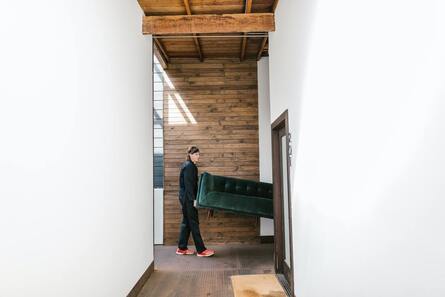


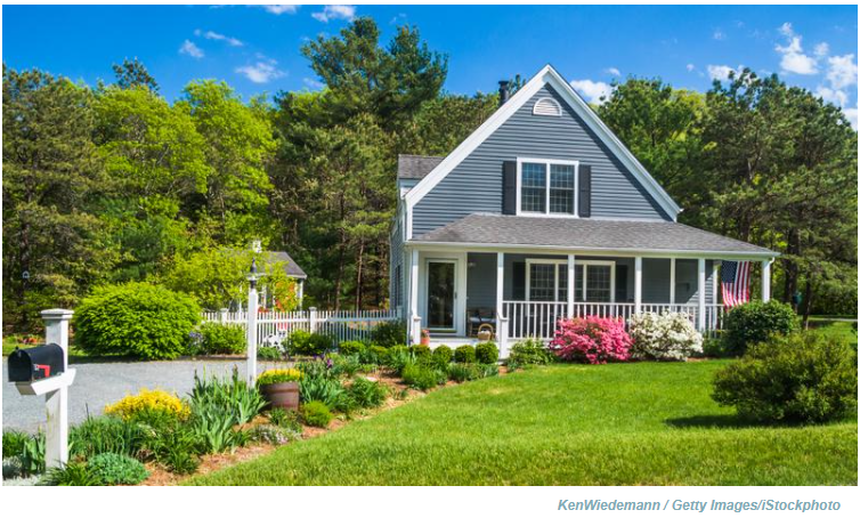

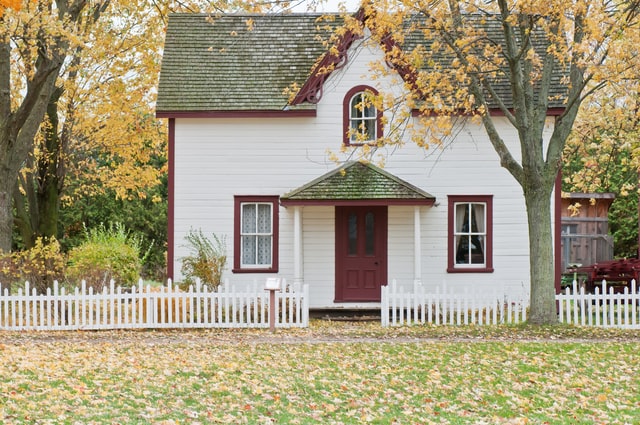

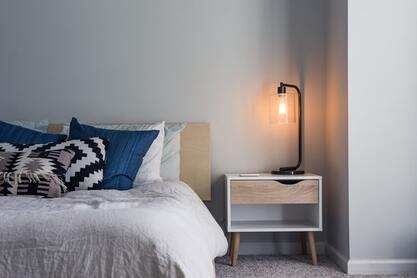


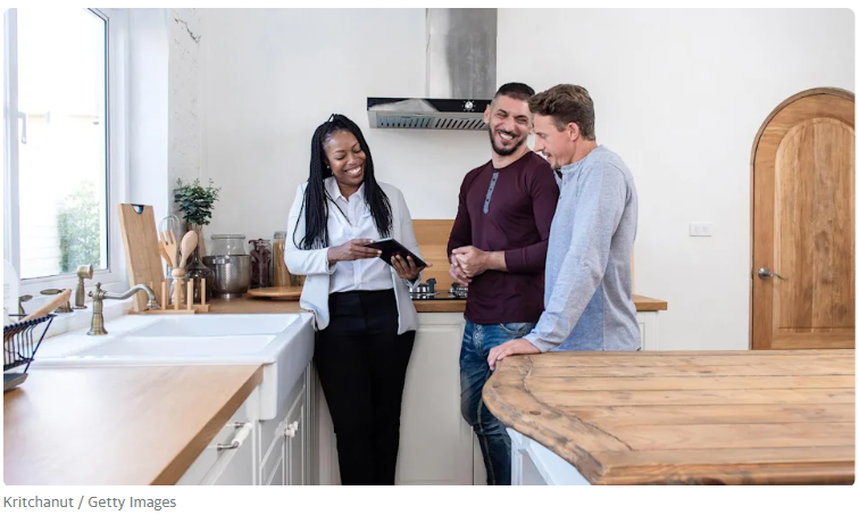



 RSS Feed
RSS Feed